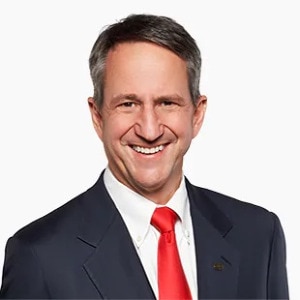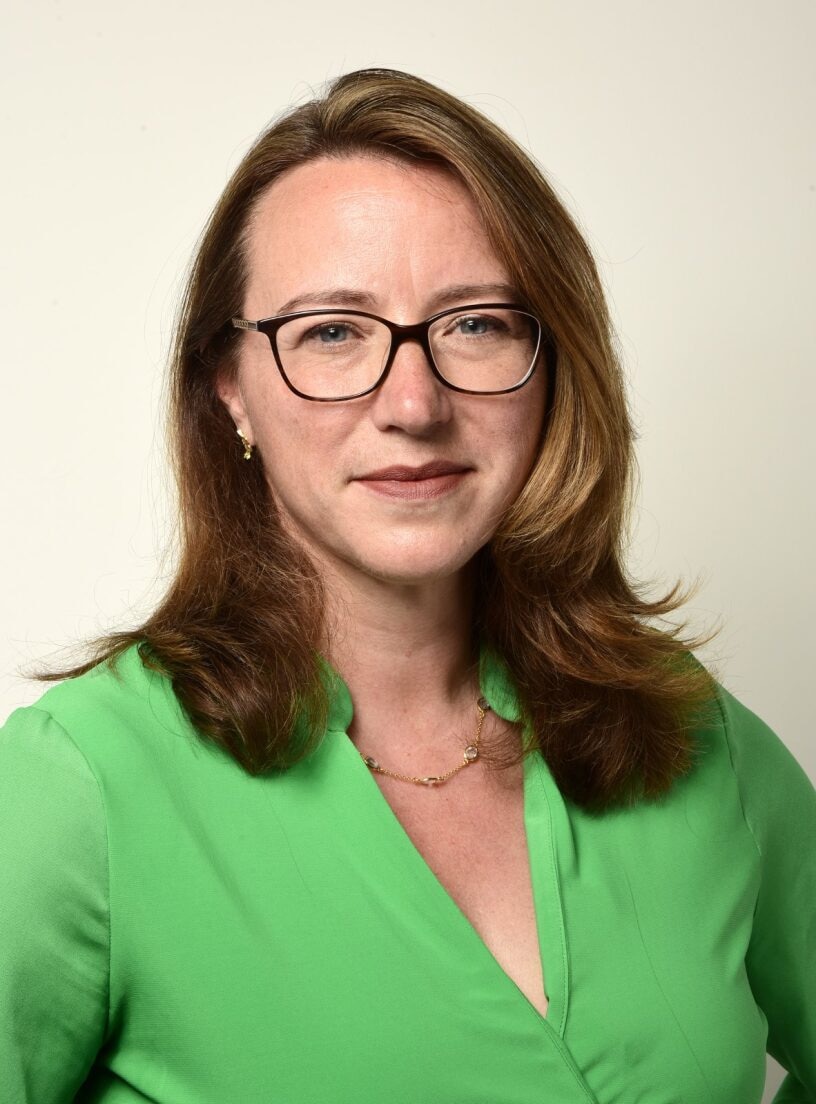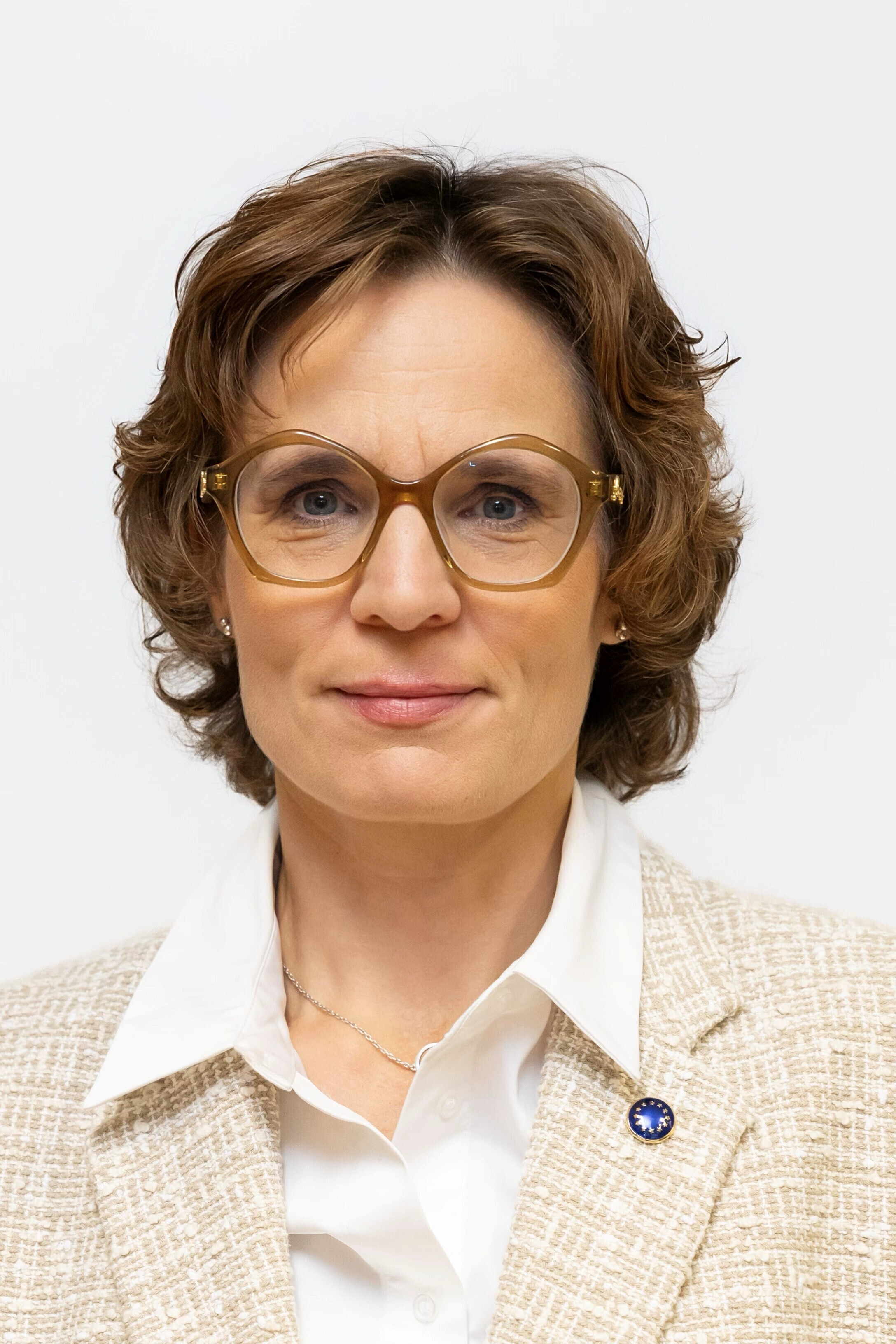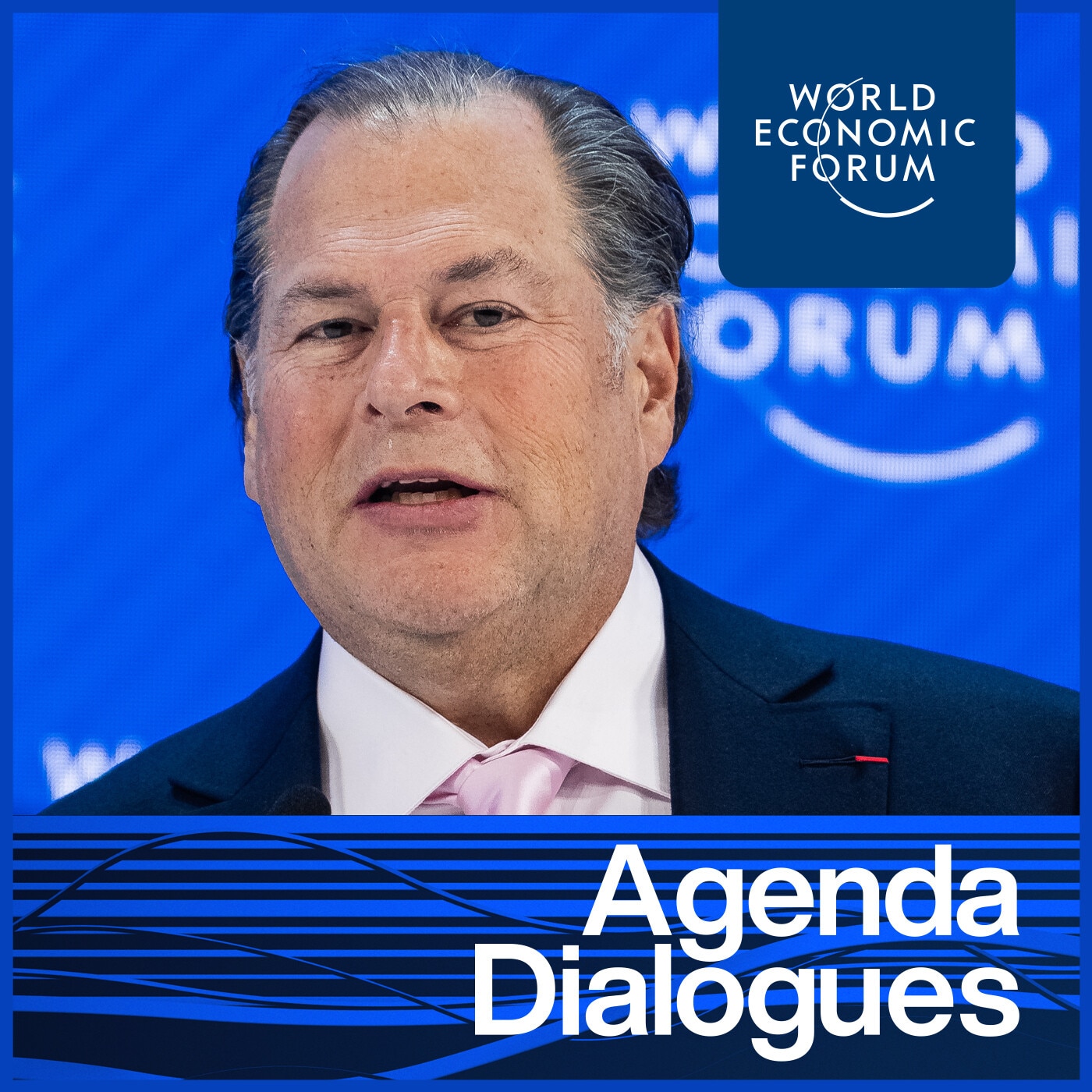Water at a Tipping Point
播客文字稿
Sherry Madera: Good afternoon, everyone. We're all having a very good discussion here at Davos. My name is Sherry Madera. I am the CEO of CDP. I'm delighted to be the moderator for this really important session. By 2030. Over half of the world's population will be in water stress. And what does that mean. That means a impact on economics. It means an impact on health. It means an impact on all of the food scarcity and food issues that we already have. In our sites today. It's nearly $7 trillion is being invested in Earth. Negative. Areas. And this is causing actually big shift. In what the planet is being able to be resilient to. I had the pleasure earlier this week of sharing a stage with Johan Rockström. When he was announcing the planetary health check. And it's grim reading. Over 6 out of 9. Of the planetary boundaries have already been breached. And the role of the economy is something we now need to pay really close attention to. One of those areas that have been breached is fresh water. Is the availability and the access of fresh water. Now, I don't want to start this panel with feeling that there's nothing we can do. There is. Things that we can do in order to be able to improve the situation. SEO, CDP, I'm very close to the data. And what we're seeing is that over 9,600 companies this year in 2024. Actually disclosed how it is that they're working with data. How they're dealing with data scarcity. And what opportunities they're also seeing. As they're seeing a new future where water. And water resilience is part of their business model. That is a 100% year on year increase in terms of disclosures. And we know that as soon as you have a disclosure... You can measure. And then you can manage. So, I hope that we can have that same balanced view as we move into our panel discussion. I would like to make sure that we. Say hello to each of our panellists. I'm looking to my left first at Jessika Roswall. Jessica is the European Commissioner for Environment, Water, Resilience and a Competitive Circular Economy. Big title.
Jessika Roswall: No, I know, but very important.
Sherry Madera: Very important. Thank you for being with us Christophe Beck, the chief executive officer of Ecolab. We also have Dr. Fajer Mushtaq. And we also have Fabrizio Palermo, the Chief Executive Officer and General Manager of Acea. Thank you panellists for being with me. And I'd like to first start with you, Kristoff. Looking ahead 10 years. Which water solutions do you think? Will shape our global economic strategies. And what can each sector do now? So that we can speed up these changes.
Christophe Beck: Great to be here and great to see as well that water is becoming a bit more central to the discussions here in Davos because When we talk about the next 10 years, I think we can even think about the next few years that are coming. We are living a pretty extreme time in terms of water. I have the chance to lead a company that's serving a million customer locations in 170 countries. We're the largest water company in the world and for 100 years we've tried helping all industries. To produce more with less water at the lower cost, which was an interesting journey. And just to add a little bit some perspective as well, as I'm sharing as well with our teams and our. Customers and countries that we serve. A few facts that If we put all water in one bubble that we have on the planet, well, that bubble would be 800 miles. White. And if we were to consider just the freshwater, that's lakes and rivers. That would be. 35. That's 50 kilometres. That's it. That is all we have. On the planet. And when we look at the supply and demand by 2030, we thought in 2019 before COVID that we would have a gap of 30%. We estimate it's going to be 56%. Today. That number has just changed 22 months ago, because that was all before. AI truly came on the planet. And I had the chance to be in Saudi Arabia a few days ago last week. Where everyone was talking about the energy transition. An energy transition is going to take. Pick your number, 10, 20, 30 years to get there. AI is happening as we speak. And we estimate that AI is gonna have an impact which is gonna be huge, that we didn't think about. It's gonna require the power of the whole of India in the next five years. And it's gonna required the drinking needs. To cool those data centres of the United States in the next five years. So when we talk about the next 10 years let alone 20 or 30 I'd like to focus on the next two or three. And I think as much as that's... A new challenge that we haven't thought about because it just started. It's becoming. An enabler for solutions. Because interestingly enough, every country, every company wants to embark on the AI wave. No one is against it. And he's realising that there is no way we can make it work without the power. That's why so many data centres are being connected now to. All nuclear plants that are restarting, interesting problem. Well, on water, the problem is that we can't create new water, we need to reuse it. And. Visiting many countries over the last few months. Going around the world. Looking at South Korea, for instance, while they're running out of water to produce chips. That get into the whole AI chain as well. In India, they're starting that new industry. Interestingly enough, so talking to the ministry as well of industry and natural resources, they forgot the fact that they will need water to do that as well in a place where there's not much water as well, you talked about Singapore as well wanted to become the data hub of the world. Well, all data centres are moving now so to Malaysia, to Indonesia, to follow water. Saudi Arabia the same Spain the same and you go to California in the U.S. As well the same. And interestingly enough the whole discussion is completely changing. It's not about saving the planet. It is about enabling the growth of a whether we like it or not. That's a different discussion. Obviously, and the few things that we see in the first one. Since we're dealing mostly with scientists and engineers. The big trigger that I've noticed over the last 18 months... Is to say that the concept of waste water is an engineering flaw. We should never have wastewater. We've been using it for thousands of years, obviously, and we need to redesign our processes, being data centres, being milk production, being processors, or whatever that is, in ways that the water never leaves the site. That's what we do with data centres with direct to cheap cooling, for instance. The water never leave the data centres unlike the old technologies as well. So that's one. It's really rethinking wastewater in terms of eliminating that concept. You need a lot of technology that exists. And the second one is to have... Countrywide plans and I've been shocked being around the world how few governments are truly having water plants. Singapore is one of them. We helped the government of France, for instance, to do their water plan when they went through crazy droughts a few years back. It's been a remarkable journey which has established a framework, new policies, new investments, new support for industries. We're doing that for California today that's going through extreme times, to say the least as well here. And the last thing I'd say... Focusing on industries is where...
Sherry Madera: So I'm going to cut you off there because it's such a perfect segue. To you, Jessica. And we'll come back to that and we'll have another round of discussions. Something that Christoph has just sparked is thinking about the regional differences and thinking about what's going on in various different. Parts of the world. And I'm just wondering if I can turn to you and ask you, what are the views of the EU? How is the EU stepping up to this? I was sitting on this very stage with President Tharman of Singapore who is deeply passionate about water. What is the EU doing about it?
Jessika Roswall: A lot of things, but starting maybe with my title, it's long, but I mean it's the first time a commissioner has water in the title, which is... It's one thing to show how prioritised this question is for... For the Commission and for President von der Leyen. So that is one thing, but as I, we don't start from scratch and a little bit talk about that. We have a lot of legislation. Very many have actually directed us on waste water. We maybe can go back to that. So. On my agenda to do is to put forward a water resilience strategy. And with that, as I said, I don't start from scratch. We have a lot of legislation. One thing that we need to focus on on a European perspective is the implementation of a lot of things that we already have regulated. And that is something that we are also going to. As you say, we have the data, yes and no, we have data. But we need also more data to help. The regions, the member states also. To Plan, Plan, plan. To do the plans or follow the plans. So it's a lot of things that I would say the water strategy as I'm going to put forward is to build on the things that we have. On different things while it comes to it. Quantity equality. And a lot of other things. But planning is one thing, and then also, and you mentioned it already, I hope we will get back to that. Is the innovation using the innovations that we already have. Building the techniques, we have them in Europe also. But we need to scale them up, and I know that probably you will. Talk more about that. So that is something. And also, yes, we focus a lot on AI. And sometimes I also hear that... We should put all the money we put on AI, we should put on the environment. And you can think the other way around. The thing that we use, that we know about AI, we can use also. And that is not the solution for everything, but using the tech, I would say, also. A last point that I think will be huge. Importance in the strategy that we will put forward is the funding. How can we unlock more funding? We have a lot of funding, of course, within the EU on cohesion money. And a lot of other things, but we need also private. Funding. And yes, we need to... Capital market union. But a lot of other things that we're looking into when it comes to funding. And here I really believe that this kind of forum is really important because this is something that we need to cross guard. I mean, it's not only the policymakers. We need to do this. Hand in hand and we have public money. It's not enough. Because we also need profit. That's a little bit of the steering what I see in the forefront. But the good thing is that we're not starting from scratch.
Sherry Madera: Absolutely, Jessica. And actually, some of the CDP data from last year shows that... There's over $436 billion of identified opportunity in water-related projects. So again, it's about unlocking that. And I think that that's where business. And government come together. Really love to turn to you for Fabrizio. You know, the... The The key here is to understand how businesses and governments need to play together in this space. So as they update their risk management investment strategies to focus on water security, which is what we all hope becomes part of the norm. What is the key part of resilience planning? How is it that actually we should be thinking about this so that we move forward faster?
Fabrizio Palermo: So thank you and I think what a resilience in general. Has been already mentioned, but is really the key. The whole point is... Nowadays, we continuously see events. That shows the impact of the event related to water. So either draught. Or floods. The average number that is generated in terms of damage is in excess of 300. Billion every single year. Less than half of that is insured. So now a day we are experiencing the consequence. But then there is the dilemma that nobody is valuing water enough. Because if you look... And going back to what Commissioner was saying. What is the real value of water? If you look in Europe... The tariff, there is a huge... Difference. You go between 10 euro for cubic metre. Up to two euros. Is it correct? Who knows? The point is that today is not sufficient to finance investment. Therefore, you know the impact on the GDP. Because water impact. You can evaluate between 60-70% of GDP directly indirectly, it impacts agriculture. Or industry. Energy, and now AI. Nobody's ready to pay for it. So this is the huge difference. Solution. Solution can be analysed. I mean, we are an operator, we run. Infrastructure and water. We know perfectly all the aspects of the problem. There is only one certainty, you need investment. I need investment. In protecting sources because the distribution of water is either sources. You need to pro- It creates an ecosystem that protects sources. You need a system to collect water. Properly, because nowadays you need basins to collect as much as water when it's raining. And two, also do maintenance to this basin. Because most of the basing and the dance done many, many years ago. Are full of debris. So you need to properly maintain them. Then you have transportation. Transportation is... Large transportation, small transportation. AI can be of great help. Because it's a question of managing data. Because this infrastructure, especially in developed countries like Europe... Have been done more than 50, 60 years ago. Where the landscape in terms of technology was completely different. And nobody now is in a situation. To do predictive maintenance on this infrastructure. So we need to launch a new cycle, for example, I mean... In the estimate that now are running in terms of investment, in my opinion, are completely undervalued. We can invest much more in order to reach another level. We're doing predictive maintenance, you can at the end. Invest even less. Then there is what leakage. Leakage is a problem everywhere. If you go to Israel, leach gauge is 7 percent. Average in Europe in excess of 20 percent in some countries. Is in excess of 40 percent. In Europe. So these are new sources. It's like discovering new sources, if you. Basically intervening leakage. And then. That's what you were mentioning, reuse. Reuse is the largest source. That the planet has. We need to, our objective should be all together to point to net zero in water. Means that the same litre of water should be used as many times as possible. And not wasted. So I fully agree that we have approached the water up to now. That wastewater treatment, which is very important, but then the water needs to be reused and not. Send to the rivers and then to the sea. Because also then shaking water also has a... Value because water and the link between health. And water, therefore also. Government spending on health. Is very related to water. Because the consequence of not having proper Fresh water. Are evident nowadays.
Sherry Madera: Well, thank you for that. And I'd love to turn to you, Fajer, the co-founder and CEO of Oxyle. This panel is called Water at the Tipping Point. Do you believe we're at a tipping point? And what is it that?
Fajer Mushtaq: Worries you. As you said, as this co-founder of a cleantech water tech startup. My personal view. And the reason why I found it, a water tech startup. Is simply that I think we're reaching the tipping point of water. A very, very long time ago. That's my personal view, but now if you look around you look at the new data that we have on the contamination sites you look at the data of how. The quality of water is not just in the developing nations, but here in Switzerland, in Western Europe, in the U.S. I think more and more people are not just... Thinking about it, they're right about it. We have reached the tipping point of water. I think in a way it's really good, the more transparency we have the more data we have. The more of these kind of conversations we can have openly and more constructively, right? And the focus that I spend most of my time. And oxal is something called, for every chemical, it's a PFAS, right? There are 10 to 15 thousand different types of compounds. Um, for those of the you who don't know what they are. They are used in every single aspect of our lives, right? We use them to make our. Teflon pans or rain-proof jackets. Cosmetics, semiconductor chips, they're really everywhere, right? And they are so unique and so, so good, like in terms of the use there, you know. Water resilient, temperature resilient, we need them, right? But what we have done a really, really poor job of. And I wouldn't just call it an engineering problem like you said, I think it's a systematic problem. Not having enough data point and manufacturing them at scale. Without testing, are they safe? How do we discharge them? Do we have the right? Waste management practises. I think as a society we did a lot of the service a couple of decades ago. Mass producing them and just putting them into the environment. Without doing a homework. So it's an engineering problem, yes, it's a technological problem, but it's a regulatory problem. It's also a... How it's in society and now. If you look at the new data from last week, it's a... 100 billion per year. EU problem every year for the next 20 years. It's a societal economic problem. And that's what worries me because It is a persistence of these chemicals. It's the reliance we have of them and how we simply cannot just replace them. For semiconductor chips tomorrow. We can't just replace it for medical devices tomorrow, right? So what do we do? We can't just ban them, that's a very good argument to talk about. Let's ban them from your places, we don't need them. We don't need them in our rainproof jackets. We can wax them, right? But we do need them in a firefighting form so we can save lives, right? So banning is not the answer. Restricting of use as an answer. But there's a bigger topic here of proper waste management here. We need to do better water treatment. And we also need to make sure that... As the treatments are getting better, the regulations are also moving in that direction. Our regulation is still quite outdated. In the EU level, I strongly feel so, last year at least in the EU. EPA side, there was a little bit of movement, right, where. For specific compounds, they went down to single digit. Removal Limits. Which was a brave new world step from my perspective. A lot of work still to be done. There are thousands of compounds and we are regulating a handful today. And they're all toxic, especially the small, the medium and short-chain PFAS compounds. That's the topic that keeps me up at night. It's everywhere. We rely on them. There are good solutions out there. That need to be deployed and we need a strong market driver for that. We need regulations. We need corporates to feel responsible for cleaning up. The wastewater they're producing every single day. But also for remediating and then regenerating the waste that they have created. In Europe, we have 20,000 plus sites. Which have more than 10 to 100 nanograms of PFAS in it. In the U.S., again, we found data last year. More than 10,000 sites and counting. These are staggering values, right? And these are values of the water, the soil, the drinking water and the rain water we have already contaminated. So it's such a complex issue, right? You can stop using them, you can ban them. What about the water and the resources we've already contaminated? Is a huge remediation opportunity. In the market today. Where we need to take care of it, we regenerate the ecosystems that we have contaminated. And just a last point on that. I know we're talking a lot about water and water is really important. But I think it's really important to also know it is. Water gets contaminated from many different diffused sources, right? So if we continue to add PFAS in sludge and fertilisers... On the soil. We will continue to have brown water that has PFAS. So it's a more complex problem. Let's not keep putting PFAS. On all over the farmlands of Europe. Because then you create a water problem downstream. In a couple of years. It's a complex problem that requires a holistic view. In terms of. Better base management. But also putting the right capital and resources to actually tackle that.
Sherry Madera: Great. Well, let's try and pivot to thinking about how we can all sleep better at night and make sure that we're thinking about some of the solutions. Christophe, part of what you're doing and leaning into is the World Economic Forum's Water Futures Community. This is looking at public-private partnerships and how you can actually unlock things that bringing communities together, couldn't. They couldn't do on their own. I think it's really relevant for this community that we've gathered both around the stage. Also at WEF. Tell us more about that, tell us where you're seeing some interesting projects on the horizon.
Christophe Beck: So maybe a segue to that. I'd like to build first on what Fabrizio was saying on the value of water, which has been a big question so for decades. Which I think is going to be really hard to address from a social perspective. It's kind of a third rail for Mali. Politicians as well at the same time. But one big thing that we forget is that there is a direct link between water and energy. And I remember 10 years ago talking to your colleague Katainen who was leading growth for Europe. There were some very good plans on waste water, some very interesting plans on climate and carbon footprint. Water was nowhere related. To energy. And if we look at the industrial sectors, all industries, starting from restaurants, to power plants, to steel mill, you name it, ultimately. Up to 75% of the power that's used by those plants. Is used to manage water. To heat water, to cool water, to transport water, to treat water. And when you think it that way, well, when you reuse and recycle the water, you reuse and recycle energy. And that puts a price on water, which is directly related to energy. And at the same time, you reduce the carbon footprint as well at the same time. We've been a 70 billion company over 100 years on that promise. Ecolab means economics laboratory, actually, because it was always focused on that link between. Water and energy. You save water, you save energy, you save cost, you safe carbon footprint. And from a legislation perspective, this is something that is usually not really addressed. And it's a huge opportunity that industries are ready to embrace. Now back to your question on this app, public private. Collaborations, partnership. There's one thing that we discovered a few years back. 150 companies. In the world. Impact a third of the world water usage. 150 could be in this room. For a third of the world water usage. And when you convince those 150 that if you save water by reusing it, you're gonna save energy, you're going to save money, you're gona reduce your carbon footprint. Suddenly things change dramatically. And that's how we've created a few years back the Water Resilience Coalition with the idea of bringing those 150 companies together and to make three commitments. First is to save water by saving energy, by reusing and leveraging technology. Second, it's to work on the hundred. Most critical basins that are serving 3 billion people around the planet. And the third one is to provide water. To 300 million people. And all of that. With no philanthropy. It is business-driven. It is capital that's invested at a return. And when we think about providing access to waters of a people in needs, one of our friends, Gary White from Water Equity, so with us today, has done some remarkable work where we can invest, provide water, mostly to women in those places that are ready to pay for it. It's good for them. It's from an investment perspective, and we create a business model that is ultimately much more sustainable. And when we see those companies work together as well, exchanging ideas, exchaging technologies, working on the same watershed, it's remarkable to see how we can solve each other's problems and what's happening around us. In California, we've gotten 70 companies that came together. We know it's a 26 percent gap that we have between demand and supply in California. And we know that the industry can solve most of it, creating a return for the industry and it's amazing to see the momentum that we're having because When people see that they can make money by doing something good, it's amazing to see how fast they're moving as well at the same time. So the whole idea of the Water Resilience Coalition is to get those 150 companies. There's absolutely no limitation. We have 40 companies today. It's over five trillion of market cap. We've made remarkable progress and we're just at the beginning of that journey. So I hope that many more are gonna join us.
Sherry Madera: Fantastic, but you're linking there is it's not. It's not about ethics and environmentalism, it's about economics. And I think that's something that we're hearing a lot and it gives me a good. Question to follow up with you, Jessica. You know, water scarcity is said to have a negative impact on global GDP. Of six percent. By 2050. As someone who's looking at both protecting. The water cycle, the environment, and of course. The prospects of the EU. How are you? Navigating that, you know, how is it that you're thinking about the growth versus... The impacts that we have on our planet.
Jessika Roswall: And we have to think. All of those together combined in one way, and I would say that... It's all a little bit back to the price, or the value of water, because... I'm coming from Sweden, and we're... Lot of us have taken water for granted. For a long time, like it's always going to be there in the source course. The human right, of course, also. So it's a complex, I think I agree with you, but it's also complex how to value this. But of course the cost also of doing nothing we know is extreme. I mean we have the flooding in Valencia, we have... We have the energy production when it comes to heat waves on nuclear plants, for example. Or transportation, where we don't can. So we also know all this. So this is, I think, why it's also very high on their political agenda. I don't have all the solutions yet. I wish, but I think one thing is also to... To unlock this financing, as I said. One other thing that I think is important for all of us and that's a quite a big of a job for me is also to talk about this. Not only with businesses but also with people. Because we, as I said, we have taken this for granted, but that is not possible no longer. And on a global stage, of course, you've been to Saudi Arabia. I mean, other parts of the world have. They know. The suffering of having not enough water. If I may, just one thing that I have to say, because I share your... Your worries, and I'm very happy that you started this. This PFAS is a huge. Challenge for all of us. I think Hope said in the beginning that I'm looking both for the quantity of water, but also the quality of water. Quality of water is a lot about pollution. And PFAS is one, of course. So this is a struggle that we need to take. Ew. Really well in the short term which is well in an EU perspective not this year but maybe soon. But I totally agree with you that in some parts we need to have a brand where we already know that we can. The shift from two other substances. And others maybe not. But I think if we make some clarity on the rules... I hope that there also will be innovation. That we have in other areas. That can, as is always so. This is also, I have to just comment on that also, because this is something that bothers me a lot, and also the people. Are really worried about the PFAS situation.
Sherry Madera: Well, you're not helping with allaying the worries. Maybe I can turn to you, Fritzio, and think about what actually we often have been thinking about when we talk about. Climate when we talk about energy. It's about trying to make sure that we're moving the money. In the right directions. And a startling fact, U.S. 900 billion is needed annually. To meet global water goals. So what are your perspectives on innovative financing? How can we move the money? In order to be able to. Close the current funding gap.
Fabrizio Palermo: I think key, I mean, in solving the water. Issue is, as we mentioned, most done by defining the rules, but also the financing. So financing, I think... In general, it's the same situation in other sector, basically linked to three aspects. First one, the pricing. And so the value of the resource, and I think we have already discussed the nature. Clearly today. The range of difference is too huge. So, and this is mainly due to the fact that also water... You cannot move it. Especially in developed countries, the system has been designed with no interconnection. You can move electricity, you can move gas. You cannot move water in reality because there is no interconnection between the pipes. So the value of water today is very different because you cannot move it. So this is the first aspect. So I think in defining what is the proper value, you need also to. To identify that this is one of the key aspects. Looking also at a specific country. You can have, at the same time, situations where you have excess water and water is lacking. And this is due to the fact you cannot move. Surprising. Is one of the key. For example, water is the only resource where you don't pay the resource. You just pay the cost. Of the investment to transport it. To make it safe. Et cetera, but you don't pay the resource. In the gas, in the electricity, you pay the resource and the transportation. This is a huge difference. Second, clearly you need investment. I mean, in developed countries, large investments have been done by government many, many years The infrastructure and going down. So I think if you assess the availability to transport water across countries. You need to analyse. If single government, also supranational government. Needs to make proper plan. To have proper return because what is clear is that investing in water makes return. Because also it's important looking at Europe. If I may. It's important to create the same level playing field as others. Area because otherwise if you look at AI decision will be done. Accordingly to the availability also of water. Thirdly, I think the financial market can be very innovative. It has been the case in the past for energy. Creating Carbon Certificate. Green Certificate. Can we not have Blue Certificate? That means that we should... Potentially financial study certificate to. Push company. To do investment, to recycle. Et cetera. And to finance. Through that to the financial market additional investment. So I think there is no single solution, I think it's sad. A menu of different solutions that needs to be properly... Analyse and put in place by... Having a central vision on what we should do in water. Because the reality... And which is key. That also at national level decision are. Too fragmented. So there is and it's very important of your appointment with this specific role. Of water resilience. Because it's the first time... That there is a single point of decision on the water matter. This should be an example that should be replicated also in Europe in the different governments.
Christophe Beck: This moving water, which is... Is right. I think it's just a little bit of the older way of looking at it. I don't think we need to move water. If you reuse it at the same location, you don't need to move it. And that's why from an infrastructure perspective, it's a little bit like if we were to improve the quality of the phone lines in Europe where nobody is using the phone on the desk anymore. So we all move to the cell phone, obviously. I'm looking at what France is doing with Fos-sur-Mer, for instance, which is going become one of the largest industrial parks in Europe. Well it's built in a way that water is going to be reused and recycled. On site with a steel mill, with a solar panel production, data centres and so on there. And you rethink infrastructure in a totally different way. And since you're reusing energy like that, well, it makes even more financial sense as well. And you move much faster. So we might have to rethink a little bit how we use water locally through technology. And that technology exists. We use that everywhere.
Sherry Madera: And again, thank you to my panellists for making my job very easy because Fajar, I'd like to turn to you. I mean, you've been a very active member of the WEF and a top innovator. Space, technology is potentially. One of the tools that we have in our human arsenal to fight. This direction of travel and when we're talking about water. Tell me more about where you think technology fits in the solution.
Fajer Mushtaq: I mean, it's a core element of that, right? So if you talk about... We need better regulations, we need better implementation. We also need a solution that can enable those regulations to be implemented. It's a core piece of that. I think for me, in the PFAS puzzle, yes, there is a lot of advancements to be made for technologies, but today do we have solutions that... Kind of work, it almost works. Yes, we do. We've had them for quite a long time. I think the problem we've had, which I think is, let's say, the biggest barrier maybe to Enable a proper. Treatment of water, not just from a B5 perspective but... Systemic, micropollutant, pesticide pharmaceutical contamination. Perspective as well. Like a f- clarity and ambiguity about. What should be regulated and what should not, right? Because if you cannot set. Clear discharge regulations. On what is considered okay and what is not. Then one country does something and the other canton does something else. It's just a lot of... Like a flower tea, which just enables people to. Keep doing the same old and then also. Prevents technological solutions not to be innovative. There's no drive in the market. For better change because the same old works, right? I think what's always missing for me in this puzzle is... What is safe to discharge, what is not? What can we eliminate, what we cannot? Something else you alluded to today, right? I think we need to just put this data out there and just set standards because that's a basic foundation homework we need to do. After that, of course, technological solutions exist. And there's a lot we can do to further bolster them. We need to create a better. Ecosystem, I feel right there. There are some early champions maybe, who want to test new technologies, who are daring. And what would make them daring, I believe, would be... Some kind of a push to be daring, like a regulatory push maybe or. An issue with paying some fines or a brand image issue, right? So it's again coming back to having clarity and raising more awareness. And this will enable an ecosystem where there are new and new and younger and younger people coming. With great ideas trying to test them. And having real support on the ground who is... Willing to test those solutions and there's maybe a funding available for them, visibility, collaboration available for That is missing, so if you want to... Set up in water to treat the water problems. It's always a daunting prospect today, right? Very capital intensive, slow moving market. Usually conservative to change and innovation. But of course, if there is a market driver, like a new regulation or a. Class of pollutants that are really problematic. That helps foster a better innovation driven ecosystem right.
Christophe Beck: I'd like to support what you're saying here because we serve a third of the world food production. We're ready to move. She has the solution. We know the solution, we know how to implement them. The whole food industry is just waiting on what's the standard, what's going to be the regulation. Before they move and that's been true for a long time. That's an obvious one where we could accelerate pretty quick.
Sherry Madera: Really interesting. What I'd like to do is make sure that we have some time for Q&A, so any of us in the audience here, please. Raise your hand, I'll take a couple questions and bring it back to the experts. But to give everyone just a moment to think, actually. You know, on our rapid fire wrap up, I'd love to hear which each of you would love to be able to reconvene here. At the WEF in 2026. And say, we did good there. That was something exciting, something positive that happened. In the course of 2025. So I will go around the room for that, but I'd first like to go. To our wider audience. Are there any questions in the room? We've got a shy group after lunch. I'm going to keep my eye open so you haven't lost your ability to do that, but let's go to that rapid fire because then at least we're going to get an idea of perhaps spark some other questions. That come out of the room. I'd love to start with you Fabrizio. If we're all sitting here together. In 2026. What is it that you're going to say? We did that really well.
Fabrizio Palermo: First thing, I think that already having this session is a great success. One year ago, it was not the case. So we are starting to speak about the problem, discussing, analysing possible solutions. I don't personally think there is one single solution to the problem. There is a menu. That differentiate between countries, between situations, etc. But the fact that we are starting to analyse the problem on the different aspects is key. Because the only way to start finding solution and to raise the responsibility of the problem that is a global problem, it's not only of... Companies that are working in the sector. Because as of today, mainly it has been the case. So either companies like yours or mine who manage the network. You are responsible over activities. So, but the level of knowledge also. Politician, et cetera, has been so far very limited. So if we are able to at least raise and present a menu of possible solutions, I think this is a great success because it's the start to find... And then to put in place. Concrete solutions.
Fajer Mushtaq: Great, inspiration for next year, for sure. I agree with pretty much most of the stuff that you said actually, so I was going to say those same things now and then. But in addition, I think if you look at the composition of this panel right now. I hope this is what success looks like. In a year. Where we have innovation, you know, market leaders, collaborators. Working together to deploy more and more solutions. Finding the price for value of this water, who's going to pay for that and how much. Can we subsidise this? How do we incentivize people? Certificate model maybe. To show, I don't know, two, three really good examples of this was done. In Italy, this was out in France, this in Switzerland. Maybe next here in Dallas somewhere. As a good example of we try to collaborate. And we which can show that the scalable model for water contamination reversal does work. It's economical, it benefits the environment, it benefit... The large corporations, it also benefits the young, innovative people out there, right?
Sherry Madera: Sounds like a great plan. We're going rapid fire. So I'm going to move over to you, Christophe.
Christophe Beck: Last year in 24, we've helped save enough water for 900 million people and saved 7 billion of operating costs in 24. So it's working and it's provoking returns as well at the same time. If next year we can have the 150 companies get together with aligned clients on how to solve it. I think that would be a... Great progress.
Jessika Roswall: Clear call to arms. Thank you. So representing the policy-maker, I mean, yeah. If I would wish for one year and also five years, this I think about also. Is to keep the water on the political agenda of the ISO. That is one thing that I said in my first interviews. And of course, I'm new here. And you have talked about a lot of these things for a long time. But I still want to be hopeful. Not only because I'm new, because I think there are innovations that we really can scale up. But if I keep the political momentum, I will say that this is one thing. Just to say also one thing that we haven't mentioned so much, why I hope that this will be political momentum is that... We talk about Mr. Draghi's report, Mr. Letta's report. Competitiveness and I think you have it. Competitive advantage here. But also Mr. Salih Ninus's report on security. Because water is also a security question. That is also why I am quite hopeful.
Sherry Madera: Excellent. Well, I think that we've got a lot of work to do this year, but hopefully we will have at least a few of those. Inspirational thoughts that we can credit ourselves with next year. In terms of wrapping up, we've done quite a wide ranging discussion and perhaps that is because water is now firmly on the agenda, that we're looking at it from many different angles. That link to energy. The fact that it cannot be divorced from what's happening with AI. The fact that we have a complex challenge in front of us with water. It's not just waste water. It's just not contaminants. It's is not just moving water to where it needs to be. It's all of plus plus plus. So let's make sure that we do think about it in that way as we talk to our financial market colleagues. Because moving the money and being able to make sure that we unlock the capital to be able to make these changes. Is going to be critical to the success. Finally, getting those goals in place. You know, we've heard from this panel, but perhaps we can inspire those that are listening. To think about what their tangible goals need to be. Not just about climate, not just about nature or biodiversity, but specifically about water. And at CDP, what we call that is thinking about Earth-positive action. And if we can actually be the partner there to think about data. Then we can actually look at the trends. And look at the data this year and next year. And hopefully have something we can all celebrate. So thank you very much to my panel. And thank you to the web for having us.
Christophe Beck: Thank you. Thank you
Water systems are reaching a tipping point, with increasing floods and droughts affecting multiple regions globally. In five years, it is estimated that half the world will face water stress, jeopardizing productivity, public health and food security, and threatening $1.6 trillion in assets.
How can we leverage technology, governance and finance innovations to avoid or manage water tipping points?
This is the full audio from a session at the Annual Meeting 2025 in Davos.
Guests:
话题:
食品和水资源分享:
更多集:
每周 议程
每周为您呈现推动全球议程的紧要问题(英文)











